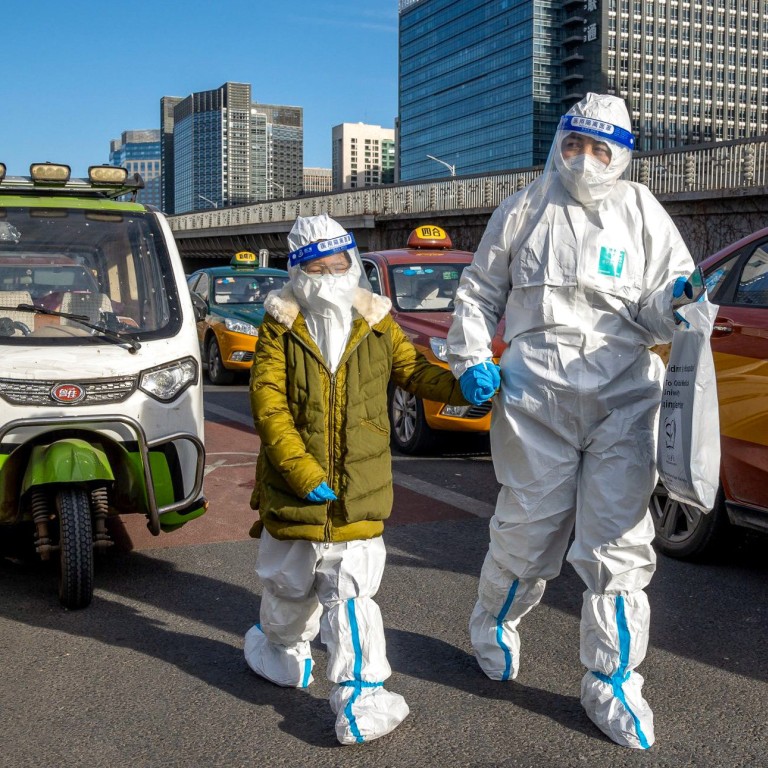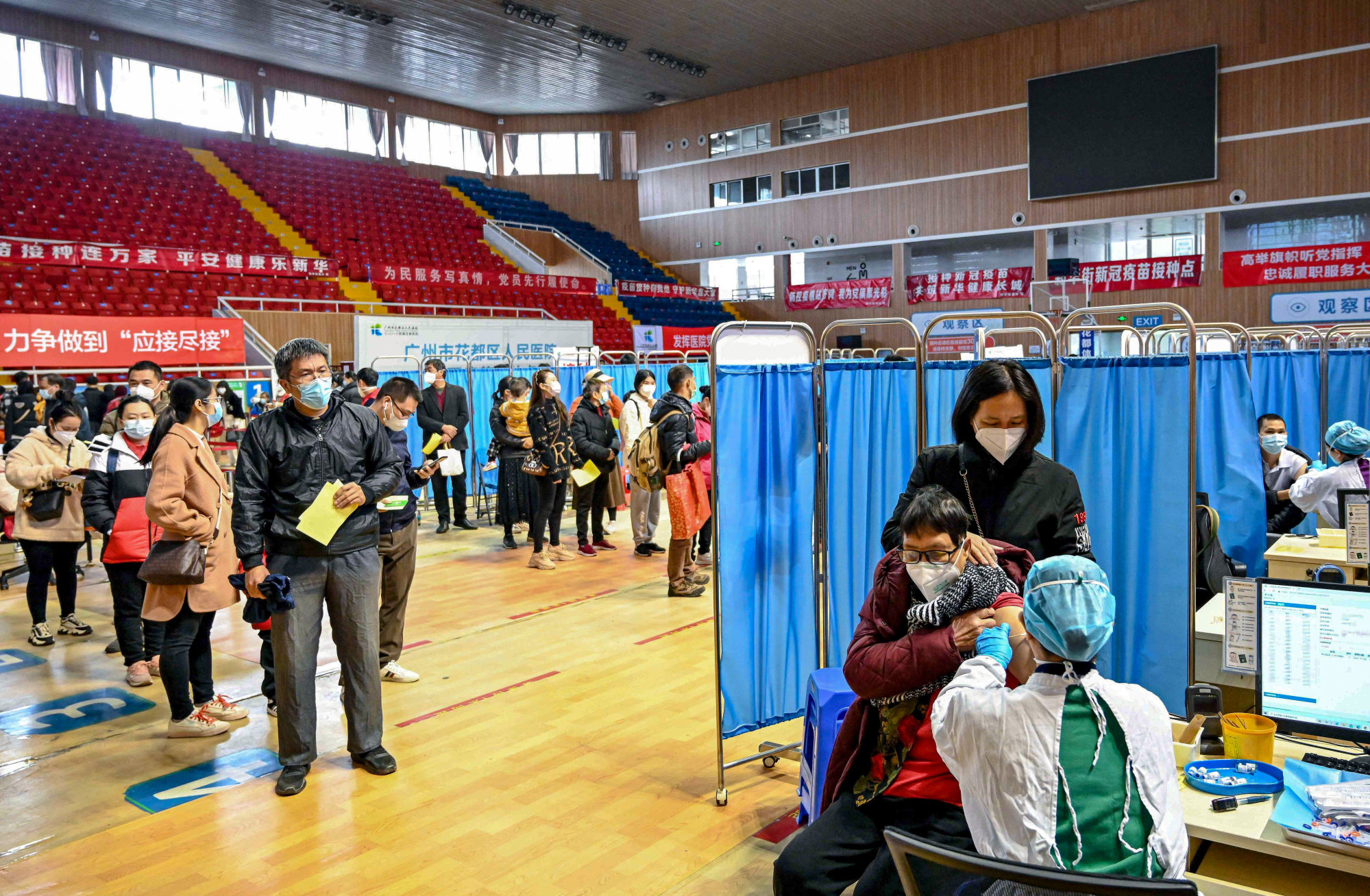
Hong Kong university predicts 1 million deaths if mainland China reopens without fourth Covid booster, antivirals and social-distancing curbs
- If country reopens fully between December and next January, healthcare systems across all provinces will be unable to handle infection surge, study says
- Researchers recommend Beijing roll out a mass vaccination programme for fourth dose 30 to 60 days before reopening
Nearly 1 million people in mainland China could die from Covid-19 if the country fully reopens without ensuring a mass fourth-dose vaccination scheme, plenty of antiviral drugs and a raft of social-distancing measures, a University of Hong Kong study has predicted.
Researchers, which included former university medical faculty dean Professor Gabriel Leung, wrote in the study that strategies to avoid an overwhelmed healthcare system and a high fatality rate were “urgently needed” after the country eased its zero-Covid policies last week.
“We first consider the status quo without fourth-dose vaccination, antivirals and public health and social measures, and epidemics are simultaneously seeded in all provinces,” the authors of the study wrote.
“In this case, reopening at the status quo would result in a cumulative mortality burden of 684 per million.”

With a population of 1.41 billion as of 2020, there would be about 965,000 deaths, based on the Post’s calculations. The official Covid-19 death toll stands at 5,253.
According to the findings, which are yet to be peer-reviewed, if the mainland kept its latest adjusted Covid-19 measures and reopened fully between December and next January, healthcare systems across all provinces would be unable to handle the surge in cases.
“However, [a] safer exit from dynamic zero-Covid could be achieved by adopting a multipronged approach comprising vaccination, antiviral treatment, public health and social measures and sequential reopening,” it said in the study.
Leung, who previously served as the undersecretary for food and health, used computer modelling to make predictions during Hong Kong’s fifth wave of the pandemic.
‘It’s ridiculous’: Beijing sees food, medical shortages as Covid cases spike
In February, he estimated the number of fatalities could reach 7,000 in the city by mid-June if the healthcare system was overwhelmed. About 9,000 deaths were recorded by that time.
The mainland relaxed its Covid-19 control measures on December 7, bringing the country a step closer to reopening. A total of 1,944 Covid-19 infections were reported on the mainland on Thursday, with no additional deaths.
Under the new rules, residents with mild or no symptoms are allowed to isolate at home for seven days, instead of at a central facility. Their close contacts may also quarantine at home for five days, instead of eight days, first at a facility and then at home.
People also no longer need to show a negative polymerase chain reaction test result or a health code when entering public venues or travelling across the country, except at hospitals, schools and elderly homes.
The country earlier announced that elderly residents aged 60 and above were eligible for the fourth vaccine dose starting Wednesday, while antiviral drug Paxlovid was approved in February.
The study used simulations to create several scenarios to find out the effectiveness of fourth-dose mass vaccination, large-scale antiviral treatment and social-distancing measures in allowing the mainland to further adjust its Covid-19 rules and fade out the zero-Covid policy safely.
How successful these aspects were in curbing the pandemic was calculated based on the experience in Hong Kong. It found the mortality rate could be reduced if reopening was adopted along with several restrictions.
“With fourth-dose vaccination coverage of 85 per cent and antiviral coverage of 60 per cent, the cumulative mortality burden would be reduced by 26-35 per cent to 448-503 per million,” the study said.
Second boosters drive for high-risk groups in China after zero-Covid shift
It added that ensuring a moderate degree of social-distancing measures could also reduce transmissibility by 47 to 69 per cent.
The researchers recommended Beijing roll out mass vaccination programmes for the fourth dose 30 to 60 days before reopening, and complete it within 60 days.
Researchers added that antiviral pills should be distributed in a timely manner with high coverage. Social-distancing measures should remain at a medium level to reduce socioeconomic disruption, but the most stringent rules should be enforced if hospitals were overloaded.
Separately, Hong Kong recorded 17,080 cases on Thursday, the highest since March 18, of which 831 were imported. Nineteen deaths were also reported. The city’s tally now stands at 2,307,397 cases and 11,075 casualties.


